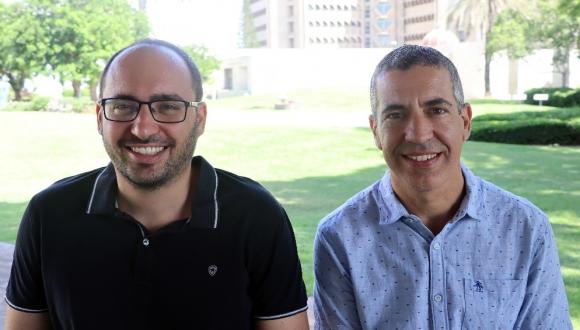By studying sleep, Tel Aviv University investigators found key to big enigma: How does the awake brain transform sensory input to conscious perception?
The study was led by Dr. Hanna Hayat and with major contribution from Dr. Amit Marmelshtein at the lab of Prof. Nir from the School of Medicine, the Sagol School of Neuroscience, and the department of Biomedical Engineering, and co-supervised by Prof. Itzhak Fried from the UCLA medical center. Also participated in the study: Dr. Aaron Krom and Dr. Yaniv Sela from the group of Prof. Nir, and Dr. Ido Strauss and Dr. Firas Fahoum from the Tel Aviv Sourasky Medical Center (‘Ichilov’). The paper was published in the prestigious journal Nature Neuroscience.
Is the brain listening during sleep? scientists from Tel Aviv University completed a unique study: focusing on data collected from electrodes implanted deep in the human brain to examine how the cerebral cortex responds to sounds, at a resolution of individual neurons, during wakefulness and sleep. They were surprised to find a strong response during sleep that was similar to wake in all aspects but one: the level of alpha-beta waves associated with attention and expectation about incoming sounds. Prof. Nir: “for the first time we have a quantitative measure that is dramatically different between the response of an awake person who is consciously hearing the sounds, and sleep conditions associated with unconsciousness and disconnection from the outside world.”
Prof Nir summarizes: “Our findings have wide implications beyond this specific experiment. First, they provide an important key to an ancient and fascinating enigma: what is the ‘X-factor’ that is unique to consciousness, allows us to be aware of things happening around us, and disappears every night when we sleep. We discovered a new important thread but the source of these signals remains enigmatic and in future studies we intend to dive deeper into the cellular machinery that generate it. In addition, we now have a specific quantitative measure that can assess the degree of an individual’s awareness to incoming sounds. With future refinement and perfection using non-invasive measures such as EEG, we hope that measuring alpha-beta activity in responses to sounds may assist in verifying that people remain unconscious during surgical anesthesia or monitor the degree of awareness to external sounds during severe dementia or disorders of consciousness. Low levels of alpha-beta waves in response to sounds could suggest that a person who is considered unconscious may in fact understand speech. We hope that our findings will serve as a basis for developing effective new methods to measure the level of awareness in individuals who may have been regarded as unconscious."


